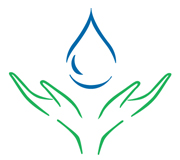
Water is a vital natural resource that is a necessity for all life on earth.
An adequate and safe water supply is critical for every community and provides for the health and welfare of its residents. Ensuring water quality in rural and remote areas is particularly important.
Water technologies and services represent a tremendous economic opportunity in a $400 billion global market. Premiers support research, development, and adoption of innovative technologies to advance water conservation and quality.
In 2010, Premiers endorsed the Council of the Federation Water Charter, which recognizes the collective obligation of Canadians and their governments to be responsible water stewards. To this end, Premiers established the Water Stewardship Council (WSC) in June 2011. Composed of senior government officials from every province and territory, the WSC had a three-year mandate from 2011-2014. The WSC provided information and strategic advice to Premiers on key trends, issues and opportunities related to Canada’s water resources. The WSC also promoted, and where appropriate, implemented the commitments of the Water Charter.
During its mandate, the WSC engaged with various water partners through the Water Partner Advisory Committee (WPAC). The WPAC had representation from across Canada and across various sectors. The Committee provided advice to the WSC and a linkage to non-governmental led water activity.
WSC initiatives included:
- Canada’s Water InfoStream
Canada’s Water InfoStream, a Canada-wide information portal, was hosted on the COF website from 2011-2017 to profile provincial and territorial government online water resources. The purpose of InfoStream was to improve access to water data and information in Canada. - Excellence in Water Stewardship Award
The Award recognized outstanding achievements, innovative practice and leadership in the area of water stewardship. Presented during Canada Water Week, the Award was given to organizations, partnerships, businesses, institutions, and community groups in each province and territory across Canada. Provinces and territories also implemented activities in their individual jurisdictions during Canada Water Week to celebrate water and draw attention to water-related issues in Canada. - Drinking Water for Small and Rural Communities
Many rural communities do not have access to safe and secure drinking water sources. Management of small drinking water systems, both public and private, impacts provinces, territories and First Nations’ communities and poses particular challenges that must be addressed by versatility in approach. Given the importance of safe drinking water, the WSC undertook three projects:
– Guidance materials for small system capacity building in the area of technical, human and fiscal resources, and for the implementation of drinking water safety plans;
– A regulatory toolbox for small systems based on non-traditional regulatory approaches and information sharing; and
– An assessment on the state, and human health risk exposure, of private drinking water wells in Canada.
- Value of Water
Many Canadians lack understanding about water’s contribution to their health, security and prosperity, and its role in supporting critical ecosystems that lay the foundation for their livelihoods and thriving communities. The WSC undertook a project to determine how information on the value of water is used in water management decision-making across Canada.
